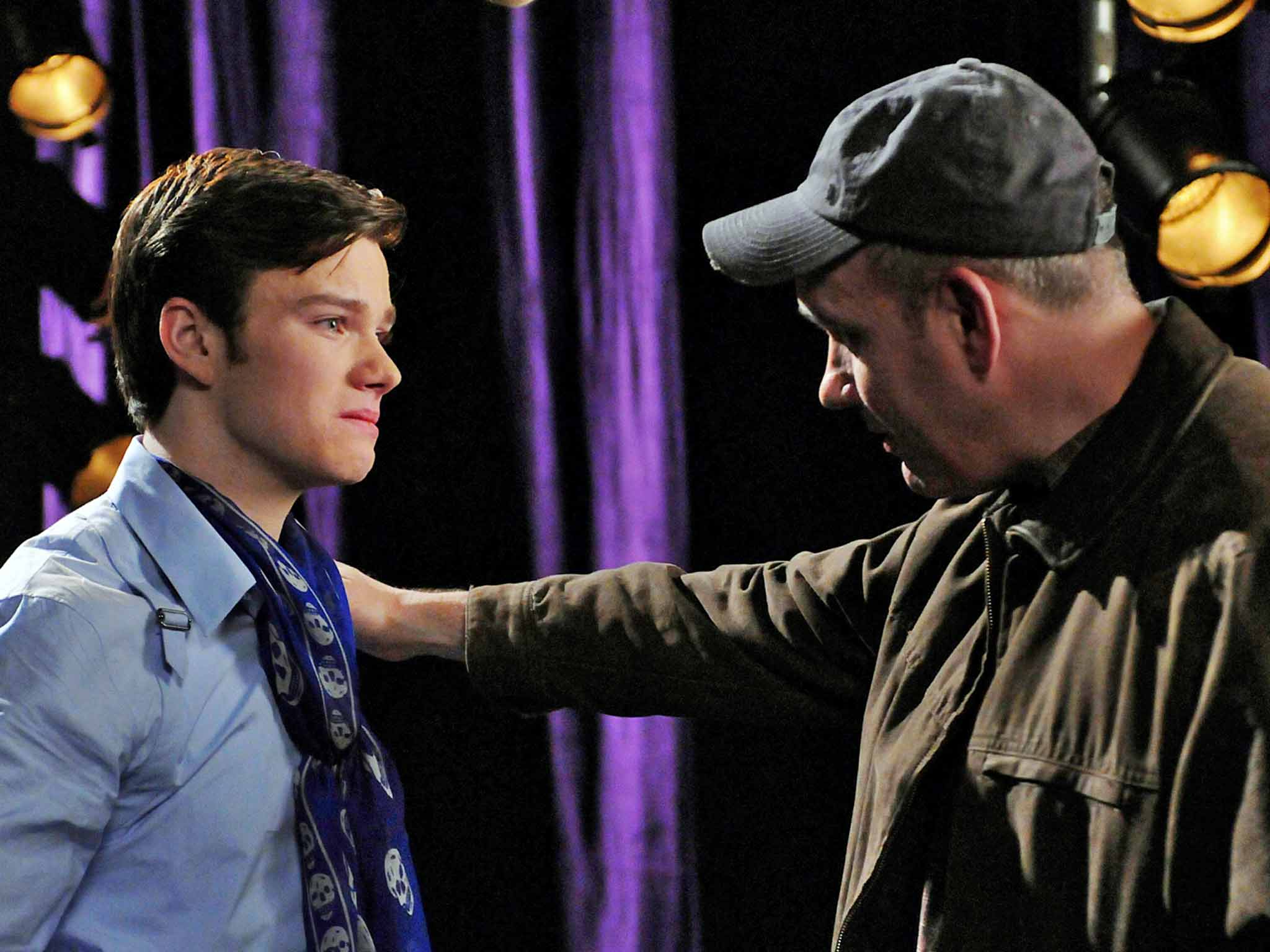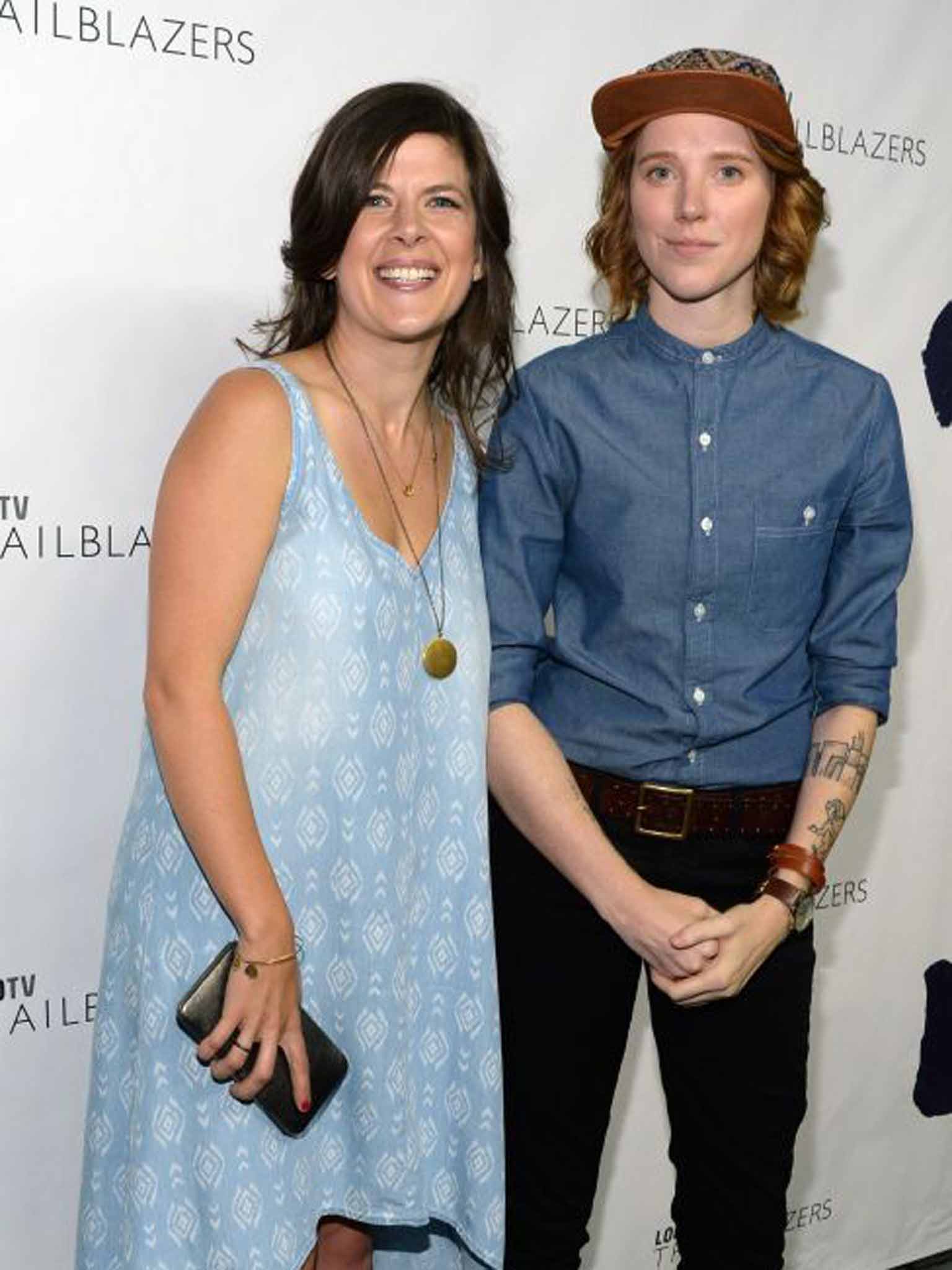Parenting gay teens: the book that all parents need to read
Life for gay teens has changed, but advice books for parents have lagged behind – until now. Zoe Schlanger meets the authors of a manual that even 'cool' parents should read

Your support helps us to tell the story
From reproductive rights to climate change to Big Tech, The Independent is on the ground when the story is developing. Whether it's investigating the financials of Elon Musk's pro-Trump PAC or producing our latest documentary, 'The A Word', which shines a light on the American women fighting for reproductive rights, we know how important it is to parse out the facts from the messaging.
At such a critical moment in US history, we need reporters on the ground. Your donation allows us to keep sending journalists to speak to both sides of the story.
The Independent is trusted by Americans across the entire political spectrum. And unlike many other quality news outlets, we choose not to lock Americans out of our reporting and analysis with paywalls. We believe quality journalism should be available to everyone, paid for by those who can afford it.
Your support makes all the difference.When Kristin Russo came out at the age of 17, her Catholic mother withdrew – for a short spell, anyway. This was in 1998. Like many parents of gay kids, Rose Russo was struggling to reconcile her daughter's sexuality with her own religious life. Extended family referred Rose to Bible passages. She spoke with her priest, who advised her that "under no circumstances should she close her door to her daughter or anyone else important in her life", Russo remembers her mother recounting. It helped, but Rose was still grasping for perspective. After a while, she sought advice from a few gay people she found through family and friends.
"My mum would just corner lesbians and just be like: 'I don't understand, how did you do this, are you having kids?' She would ask them a hundred questions, and that was her only information about how my life might turn out," Russo says. For nearly a decade, any trip Russo took home from college and later New York City ended with her mother bursting into tears. "I think she was just wanting it to go away," Russo says.
As far as Russo, who is now 33, knows, in those pre-Google days Rose never went to the library to find books on parenting gay teens. Even if she had, the few books available may have made her mother feel worse, not better. Their approach was largely clinical and gloomy, and they escorted parents through a grieving process and toward acceptance, as if their child had been diagnosed with a disease.
Now, in 2014, the internet is awash in parenting blogs. Dozens of books are published each year on raising children and teens, but the literature landscape for parents of gay kids is virtually unchanged. A handful of books, mostly updates of editions written in the 1970s, 1980s and 1990s, relate stories of parents struggling to come to terms with their children's sexuality.
Popular culture has undergone a revolution in attitudes toward LGBT people in the past five or so years. A generation is coming out younger, and parents are more willing to embrace them. But resources for those parents have lagged behind. That is, until September, when Russo and her co-author Dannielle Owens-Reid, 28, released a remarkably simple book.

This Is a Book for Parents of Gay Kids is for parents who want to be accepting, but "maybe they aren't right now and maybe they're really uncomfortable, and maybe they think their kid is going to hell", Owens-Reid says. But it is also for a "new breed of parent", as Russo puts it: those who are so eager to be accepting that they fail to recognise the difference of their child's experience. "I see it so often," Russo says. "These parents are so cool with their kid being gay that they don't ask any questions, either because they think it would betray that they are indeed struggling, or because they think they don't have any. Their kid is gay, they still love them, case closed."
Of course, that support is a great start. But, Russo says: "It kind of forecloses the way that you can love your kid if you can't let yourself ask any questions. It is different to walk down the street as a queer person than it is to walk down the street as a straight person. I think there is a real danger in saying no one is different."
The book consists of a big, blunt Q&A: "How should I handle sleepovers?"; "How do I talk to my child about safe sex?"; "Who should I tell?". A glossary in the back decodes the mystifying constellation of words – heterosexism, FTM, queer, genderqueer – that a straight parent is likely to hear for the first time. Personal stories are sprinkled throughout, from kids and parents everywhere on the experience spectrum – gay, bisexual, transgender, religious, bullied, the parent who always knew, the kid who threw everyone for a loop. It is such a necessary resource, it is hard to believe it didn't already exist. Then again, Russo and Owens-Reid are the duo behind the website EveryoneIsGay.com and its corresponding YouTube channel, known to LGBT teens on the internet as the place to go for straightforward advice.
On video, the pair lip-synch to pop songs and respond to questions from viewers, such as "How do I get the person I'm interested in to know I'm queer?" or "I want to talk to the other gay girl at my school without being awkward. Help?" Other questions illuminate darker worries: there's the caller who is worried she might be going to hell for being gay, or the guy who isn't sure how to come out, because his sister already came out as gay and their parents turned out not to be accepting.
Even when the advice gets serious – when addressing questions about homophobic parents, for example – there is still humour.
"We still keep things very light-hearted. Because I think before you talk about anything, it feels so heavy. But once you do it, you're getting over that little hump," Owens-Reid says.
Russo and Owens-Reid never really meant to start an LGBT advice empire. In fact, their site began as something of a joke. At the time, in 2010, Owens-Reid was stocking a Tumblr called "Lesbians Who Look Like Justin Bieber" with, yes, photos of lesbians whose aesthetic and swoopiness of hair resembled those of the boyish pop star. The blog attracted attention from media outlets such as the New York Post, and from lesbians who were offended.
"There were people who were fans of the site who would be asking me questions about love and heartbreak, and then there were a huge chunk of people telling me I was stereotyping the community and making lesbians look bad," Owens-Reid tell me. They began EveryoneIsGay.com in 2010 as a place to respond to the Bieber Tumblr criticism. "We didn't really have any intention of doing anything past, like, sassily talking back to some people and answering some advice that was funny and very light-hearted," Russo says. The first request was "How do I know if my dog is gay?" It was submitted by Russo's sister.
Soon, the requests for advice came pouring in, and they weren't all light-hearted. "It was like, 'Oh, this person is afraid to come out to their family because they might get thrown out of their house'. That was a turning point for us. And so we sort of looked at each other and decided to try it," Russo remembers.
In the autumn of 2010, within a matter of weeks, four American teens between the ages of 13 and 18 killed themselves after enduring harassment from peers for being gay. The news shed new light on the pressures faced by gay teens. By 2011, colleges and schools began asking Russo and Owens-Reid to speak in their classrooms and auditoriums. Bullying of gay students had gone unaddressed for so long. Now, schools knew they had to talk about it, but didn't know how. The pair have been to more than 100 schools to date.
Meanwhile, Russo and her mother, Rose, have come a long way. Rose, 61, now accepts and embraces her daughter, and her daughter's wife. "I don't know exactly what happened. The only thing I can tell you is that in 2001, I was very sick," says Rose. "A gall bladder operation went wrong. I could have died. You have these near-death experiences, and afterward you reflect. Kristin was my biggest reflection. I didn't know if she would have known how much I loved her, if I passed away."
Rose recalls feeling deep regret for the years of strife. "I was like, 'Oh my God, how could I have done that to her?' I'm almost ashamed of how I was. I thought, 'This is my child; if I can't accept her for who she is, I'm not such a good mum'. I just didn't care any more what people thought. That totally changed things for me."
It was a number of years before Russo felt that her mother had fully come around. Six years ago – 10 years after Russo came out – she says she could tell for the first time that Rose felt comfortable around Russo's then-girlfriend. "I would say 27 was the age," Russo says. "That was when I could go home without her sitting me down and bursting into tears."
But now, Rose says she's proud of Russo and Owens-Reid's work with LGBT youth, and wishes something like This Is a Book for Parents of Gay Kids could have existed then.
"I was struggling so badly then with her being gay, and I didn't know if I could ever overcome that. Now, I look back and can't believe I went through all that turmoil," Rose says. "She's a wonderful girl. She really is. To me, the book is a wonderful thing. It's all coming full circle."
(c) Newsweek, Inc. All rights reserved.
Join our commenting forum
Join thought-provoking conversations, follow other Independent readers and see their replies
Comments